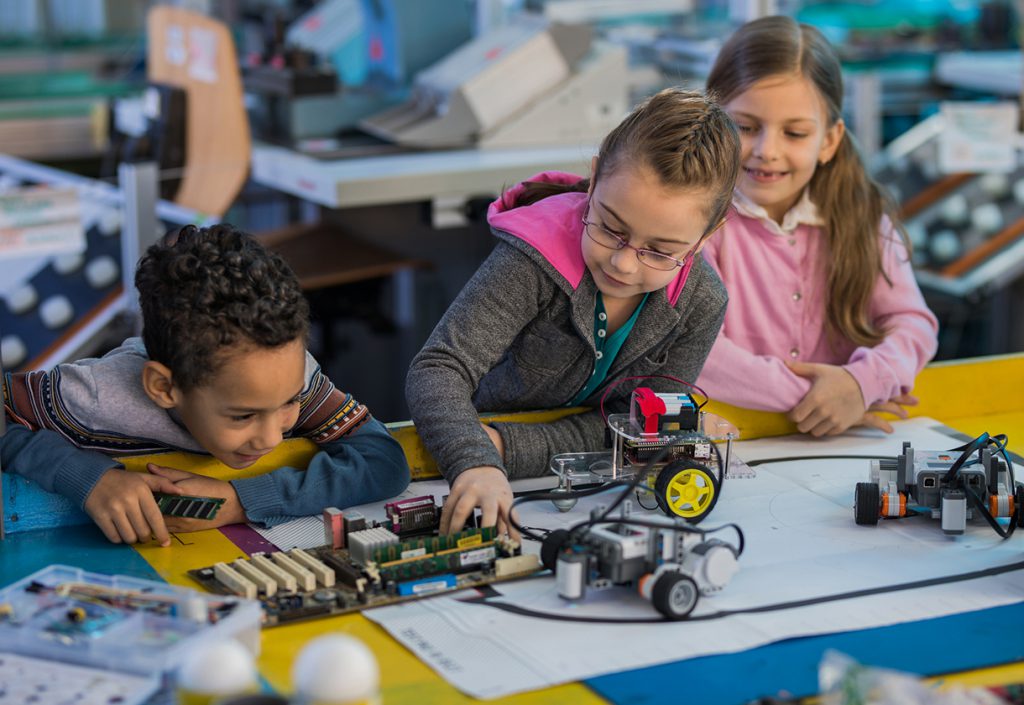Getting Hands-On Deepens Science Learning

The rise of virtual and online classrooms has meant that students have fewer opportunities for hands-on experiences with the concepts they are learning. But research suggests that students who are able to test or demonstrate scientific concepts in ways that are hands-on understand the concepts more deeply and score better on science tests.
The research, published in Psychological Science, comes from the Human Performance Lab at the University of Chicago, led by psychological scientist Sian Beilock.
“This gives new meaning to the idea of learning,” Beilock in a UChicago news story. “When we’re thinking about math or physics, getting students to actually physically experience some of the concepts they’re learning about changes how they process the information, which could lead to better performance on a test.”
To see how hands-on experience influences learning, Beilock and co-authors Susan Fischer at DePaul University, UChicago graduate student Carly Kontra, and postdoctoral scholar Dan Lyons had college students read about the properties of angular momentum and then either take part in or observe a hands-on demonstration of those properties.
The hands-on demonstration used a system of two bicycle wheels that spun independently on a single axle. To experience angular momentum, students held the wheels by the axle and tried to tilt the axle from horizontal to vertical, while attempting to keep a laser pointer on a target line on the wall. When the axle tilted, the students experienced torque—the resistive force that causes objects to rotate.
Brain imaging data indicated that students who participated in the hands-on demo showed greater activation in sensorimotor regions when they were quizzed on the scientific concepts in comparison to students who merely observed the demo. The hands-on students also showed better performance on the actual quiz.
A final experiment with students in a college-level physics class showed that hands-on experiences gave students a performance bump that showed up on quizzes and homework completed days after the demonstration.
“Reading about a concept in a textbook or even seeing a demonstration in class is not the same as physically experiencing what you are learning about,” Beilock said. “We need to rethink how we are teaching math and science because our actions matter for how and what we learn.”
![]()
Kontra, C., Lyons, D., Fischer, S., & Beilock, S. (2015). Physical experience enhances science learning. Psychological Science. DOI: 10.1177/0956797615569355





APS regularly opens certain online articles for discussion on our website. Effective February 2021, you must be a logged-in APS member to post comments. By posting a comment, you agree to our Community Guidelines and the display of your profile information, including your name and affiliation. Any opinions, findings, conclusions, or recommendations present in article comments are those of the writers and do not necessarily reflect the views of APS or the article’s author. For more information, please see our Community Guidelines.
Please login with your APS account to comment.